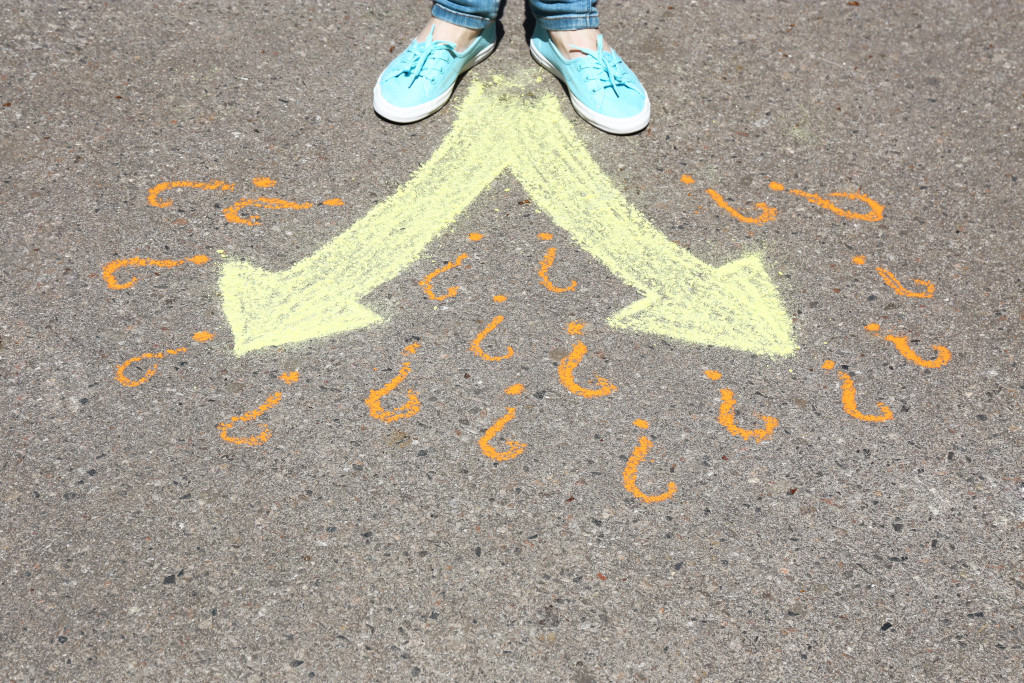I’ve never wanted children, as far back as I can recall.
 As a kid, I did play with names for “my twins,” like Dennis and Denise, Michael and Michaela, and Joseph and Josephine. And I played with dolls, but never as though they were my children, rather as though they were me and my sisters, playing with each other. Unlike most women, I never had an actual plan for having children.
As a kid, I did play with names for “my twins,” like Dennis and Denise, Michael and Michaela, and Joseph and Josephine. And I played with dolls, but never as though they were my children, rather as though they were me and my sisters, playing with each other. Unlike most women, I never had an actual plan for having children.
I never really thought much about that, assuming that the fact that I had pretty horrifying monthly menstrual cramps was the reason why. When you suffer monthly from what feels like childbirth, I thought, you pretty much decide that you never want to go through that process voluntarily.
But a client yesterday offered me another explanation.
I had just explained to him why I’m so passionate about the collaborative process for divorce. He said, “I’ll bet you never wanted to have children after what your mother did to you and your sisters.“ I had never really thought about it that way. When I was seven, my parents were divorced (in court) and my mother loaded us kids into the van and moved us 3,000 miles away. I never saw my father again.
Children whose parents go through a high conflict divorce may experience behavioral problems, trust issues, attention deficiencies, and coping problems.
 These issues in childhood can lead to a damaged concept of self, anxiety, depression, substance abuse, suicidal ideation, and/or spiritual confusion in adulthood. They are less likely to marry and have their own children. It’s as though they are scared of having their own families because they relate being part of a family to suffering from emotional and psychological pain.
These issues in childhood can lead to a damaged concept of self, anxiety, depression, substance abuse, suicidal ideation, and/or spiritual confusion in adulthood. They are less likely to marry and have their own children. It’s as though they are scared of having their own families because they relate being part of a family to suffering from emotional and psychological pain.
Litigation breeds contention and conflict.
Attorneys wage war against each other and the spouse on the other side. One client told me that her previous attorneys had tried to turn her husband, “our children’s dad,” into “The Enemy.” She was smart enough to find a lawyer who listened to her concerns, and to her goals and interests, me. Those lawyers will convert minor issues into major ones to give their clients the upper hand. They place the children in the middle and ask them to choose sides. They waste their clients’ life savings on a war that no one can truly win.
But there is a better, healthier way to divorce.
Collaborative divorce allows parties to focus on what is best for the entire family, rather than just an individual in the family. It is the better answer to avoid the negative after-effects of a high conflict divorce because a team of professionals helps the spouses to avoid behaviors that can lead to conflict.
The team usually includes a mental health professional who establishes an atmosphere of cooperation, respect, and reasonableness. She assists the clients in learning negotiation skills, monitors the clients’ emotional wellbeing, and teaches them better problem solving and more effective communication strategies. She employs various approaches to enhance the collaborative team members’ effectiveness. She assists the spouses in recognizing and coordinating their respective parenting styles to enhance their future co-parenting relationship.
Because she’s trained in human behavior, communication skills, personalities, etc., she’s more able than the other professionals to defuse destructive situations and prevent progress-halting situations from developing and commandeering the process.
Most collaborative cases begin with the clients identifying their interests and goals, and during each meeting thereafter, the professionals remind them of these as they are of paramount importance. Positional bargaining versus interest-based negotiation is a fundamental shift in thinking that lets go of labels in favor of the bigger picture. Once interests are identified, then the team will brainstorm options to meet them, rather than clinging to a single option that only satisfies one position.
The team enables the spouses to reach a resolution that meets each spouse’s most important goals. Collaborative clients are less likely to have post-judgment issues because their agreements are so thoughtfully crafted by several professionals who each offer their own unique education and experience and who have the best interests of the family in mind.
Collaborative divorce is a kinder, gentler way to divorce.
By divorcing collaboratively, a couple can restructure their family in a way that avoids the negative impact on children that litigated divorce inevitably inflicts on them. Call us at Open Palm Law to find out more.
Learn more about collaborative divorce. Follow Open Palm Law.
Need advice now? Contact Joryn!

About this week’s author, Joryn Jenkins.
Joryn, attorney and Open Palm Founder, began her own firm here in Tampa after a 14-year career in law, two of which she served as a professor of law at Stetson University. She is a recipient of the prestigious A. Sherman Christensen Award, an honor bestowed in the United States Supreme Court upon those who have provided exceptional leadership in the American Inns of Court Movement. For more information on Joryn’s professional experience, take a look at her resume.













